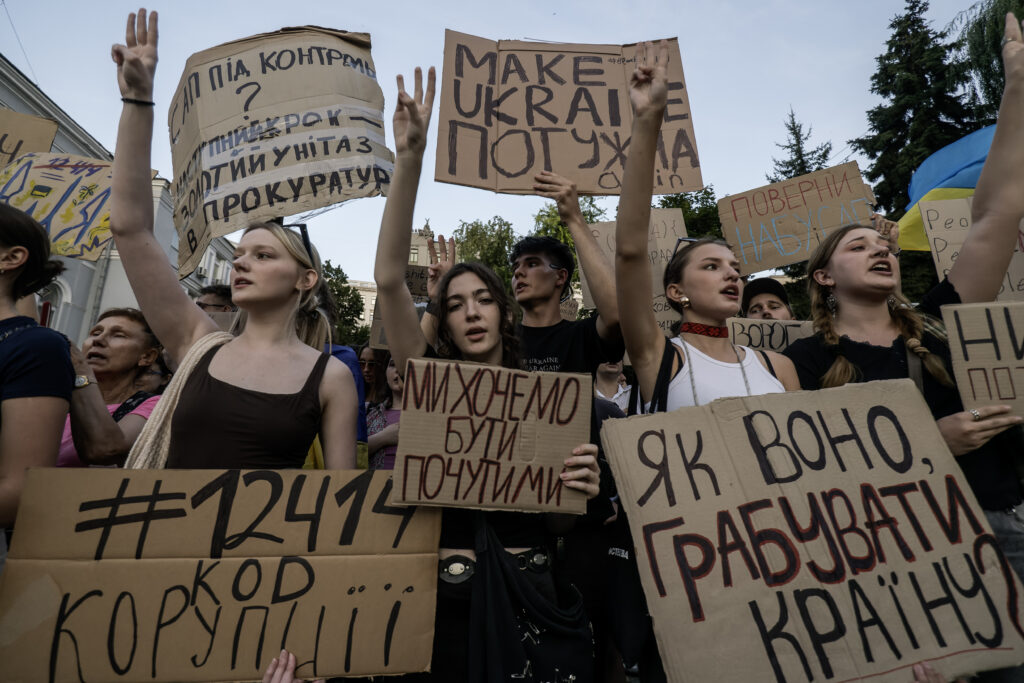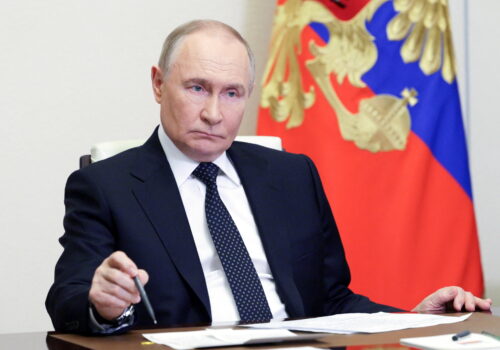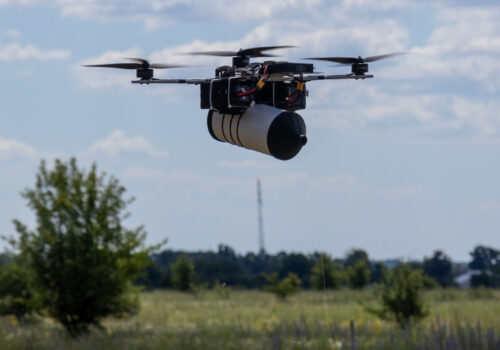For decades, I’ve been working to promote and defend Ukraine’s Euro-Atlantic path as part of the country’s vibrant civil society. When I first began advocating for potential Ukrainian NATO membership, I kept hearing that it is not just an army but an entire country that joins the alliance. This is why Ukraine’s membership bid extends beyond military interoperability to also encompass the far broader concept of democratic interoperability.
Since Ukraine’s integration into NATO has been politically stalled, the EU accession process has become the primary track helping Ukrainians to ensure their country’s democratic interoperability. This is especially true given that the European Union has traditionally been the main driving force for the transformation of the wider region.
Ukraine has experienced this firsthand. The most important reforms carried out in Kyiv over the past decade have almost all been tied to Ukraine’s EU integration. This has included the launch and development of the country’s independent anti-corruption infrastructure.
Attempting to advance toward European Union membership in the present conditions is exceptionally challenging. Ukraine is the first country ever to approach the democratic transformation necessary for EU accession while fighting a full-scale war. No other European nation has ever joined in such circumstances.
Stay updated
As the world watches the Russian invasion of Ukraine unfold, UkraineAlert delivers the best Atlantic Council expert insight and analysis on Ukraine twice a week directly to your inbox.
While Ukraine currently faces a range of unique challenges, this cannot justify neglecting democratic principles. On the contrary, defending the democratic gains of recent decades is vital if further progress toward Euro-Atlantic integration is to be achieved.
Ukraine is home to one of the most dynamic and demanding civil societies in the world today. The country has staged two revolutions since regaining independence. Both were in support of Ukraine’s European and democratic path. Meanwhile, there have been no protest movements or grassroots campaigns in favor of authoritarian rule or alignment with Russia, even at times when public attitudes toward Moscow were very different.
Ukrainian President Volodymyr Zelenskyy’s swift response to last week’s protests in defense of the country’s independent anti-corruption institutions shows that Ukraine’s democratic instincts are as strong as ever. The next big test for Ukrainian democracy will be Thursday’s parliamentary vote on a presidential bill that aims not only to ensure the independence of anti-corruption bodies, but also to make them more effective.
Eurasia Center events

Ukraine may not yet be an ideal democracy, but Ukrainians have clearly identified the democratic direction they want their country to move in. This is not because the EU demands it, but because it is the future the Ukrainian people wish for themselves and for their children.
Ukrainians understand that only a democratic Ukraine, fully integrated into Euro-Atlantic structures, can be truly safe from further Russian imperial aggression. By embracing democratic values, Ukraine moves decisively away from the Kremlin’s authoritarian alternative and can no longer be treated as a “mini-Russia.”
There is also growing awareness that while Ukraine currently deserves the support of its partners as the victim as unprecedented international aggression, continued assistance will depend on the extent to which the rule of law prevails and the principles of transparency and accountability are upheld.
The heroism and sacrifices of recent years have unquestionably consolidated Ukraine’s commitment to democratic values. The deaths of so many Ukrainians in the fight for a democratic European future weigh heavily on every single question related to the country’s adherence to democratic norms and practices. Understandably, families and friends who have lost loved ones will not allow their sacrifices to be in vain.
After defending their homeland against authoritarian Russia’s full-scale invasion for more than three and a half years, Ukrainians now firmly believe they have earned the right to be seen as the front line of the democratic world. They know that Putin’s imperial ambitions extend far beyond Ukraine, and see how other autocratic regimes like China, Iran, and North Korea are aiding the Russian war effort. Ukrainians feel they are fighting on behalf of all freedom-loving nations, which makes it even more important for them to preserve and strengthen their country’s democracy.
Alyona Getmanchuk is Head of the Mission of Ukraine to NATO-designate.
Further reading
The views expressed in UkraineAlert are solely those of the authors and do not necessarily reflect the views of the Atlantic Council, its staff, or its supporters.

The Eurasia Center’s mission is to enhance transatlantic cooperation in promoting stability, democratic values, and prosperity in Eurasia, from Eastern Europe and Turkey in the West to the Caucasus, Russia, and Central Asia in the East.
Follow us on social media
and support our work
Image: In Kyiv, Ukraine, on July 24, 2025, Ukrainians participate in the third consecutive day of protests near the Presidential Office against a newly passed law that undermines the independence of anti-corruption institutions, amid ongoing Russian aggression. (Photo by Maxym Marusenko/NurPhoto)




